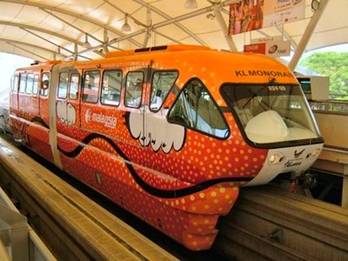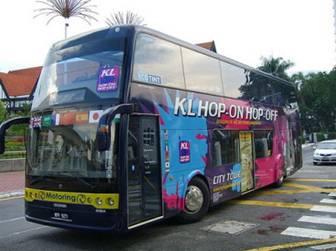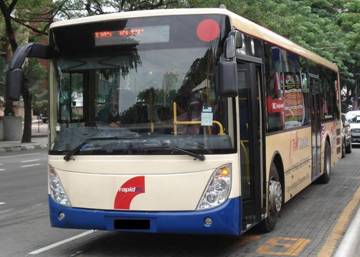KL Intra-city Transportation
Kuala Lumpur’s rapid transit system comprises six metro lines, operated by four operators, out of which RapidKL and Keretapi Tanah Melayu are the most important.

KL Hop on Hop off Ticket
The Hop-On-Hop-Off tour is one of the best ways to see KL, allowing you to get off the air-conditioned bus at any stop, explore major sightseeing spots and their surrounding attractions, and then hop on-board the next bus.

Taxi
There are two types of taxis in Malaysia: local and long-distance. The former are usually red-and-white or yellow-and-blue and are metered taxis that can be hailed throughout the city. Some taxi drivers charge tourists extravagant fares so be sure to insist that they turn on the meter: local metered taxi fares are cheap, starting 3 RM.

Buses
KL’s array of bus services is quite efficient with a network of public express buses and several privately run services. RapidKL is the largest single bus network operator in the country and it currently runs 177 routes around the city. Recently the bus system was revamped and RapidKL divided its fleet of buses into four classes: express routes, city shuttles, trunk routes and local shuttles.

Within KL city centre there are five major bus hubs: KL Sentral, KLCC, Maluri, Titiwangsa and Pudu Sentral. These bus hubs are usually located near public transit stations such as Kelana Jaya Line transit stations. Pudu Sentral used to be KL's main bus station and after a complete make-over in 2011, it now servers north-bound buses.
Buses are usually much faster than trains: however some do arrive at awkward times in the middle of the night.
KL Central Station
KL Central is KL’s main railway station (it has officially taken over the role of the old Kuala Lumpur Railway Station) and is the largest train station in Southeast Asia. The hub from which all long-distance trains depart from, it is best known as the integration point of an urban rail-based network (comprising the KTM Komuter, KLIA Express, KLIA Transit, LRT and Monorail systems).
A convenient place to get around much of central KL, it is also called Stesen Sentral. The only downside to KL Central is that all the systems here are built separately and even when there is an interchange between the services, they are rarely connected: plus each system has a separate ticketing system, making it tiresome to switch between services.
*For more information please fill our form so that we can arrange a counseling session and/or send you more information regarding everything you need before you go.*